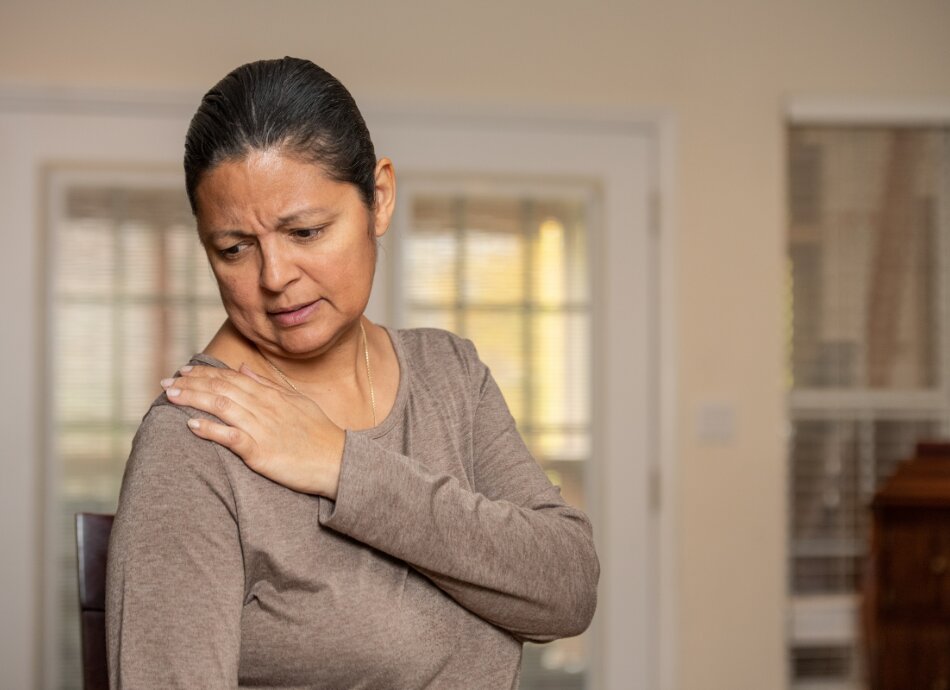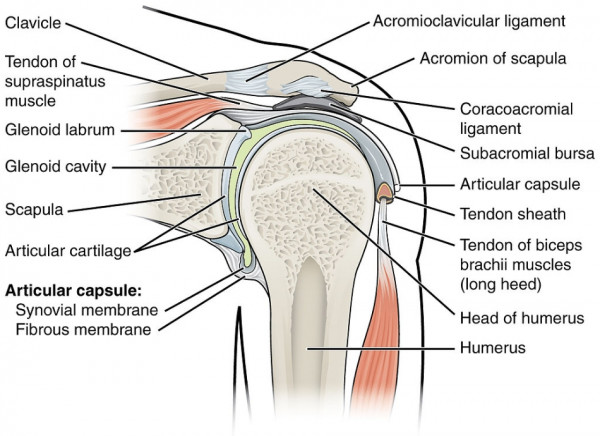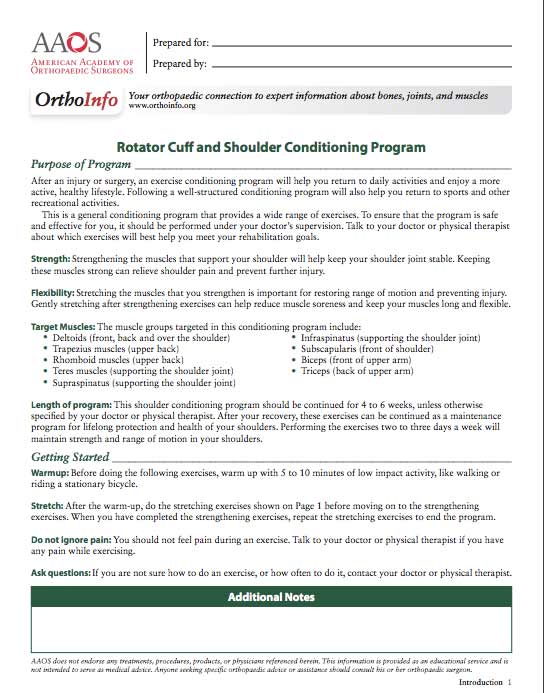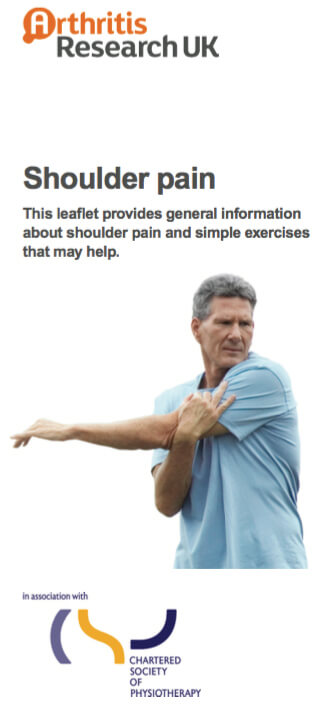Causes of shoulder pain can be divided into the following:
- painful shoulder
- stiff shoulder
- loose shoulder
- other shoulder conditions.
The painful shoulder
Rotator cuff related shoulder pain: The rotator cuff is a group of muscles and tendons that surround your shoulder joint, keeping the head of your upper arm bone firmly within the socket of the shoulder. Pain associated with the tendon is often called a ‘tendinopathy’ or ‘tendinitis’. A tear of the tendon may also be present, or the bursa (small fluid-filled sacks which cushion the tendons and capsule) can be temporarily inflamed. This condition has also been called a 'tendinitis', 'impingement' or 'bursitis'. Changes like these can also be part of normal ageing. Instead of finding out exactly what is causing the pain, it's more important to find out what treatment can help your pain, or what you can do yourself to manage the pain.
The stiff shoulder
Frozen shoulder: A frozen shoulder can cause severe pain and stiffness in your shoulder. It may have 2 phases – first the pain is worse than the stiffness, then the stiffness is worse than the pain. It can often come on without a cause, but in some cases it can develop after surgery or an injury. It can also be more common in people with diabetes. Recovery can be slow and may take more than a year. If you think you have a frozen shoulder, you should see your healthcare provider to find out if there's an underlying reason for the condition.
Osteoarthritis: This is the most common form of arthritis affecting people as they get older. Read more about osteoarthritis.
The loose shoulder
Dislocated or subluxed shoulder: These injuries are usually due to an injury or an accident, eg, a fall. If you felt your shoulder dislocate (pop out), you should go to the emergency department (ED) as your shoulder may need to be put back into place. An X-ray or other investigation is usually needed to check for a fracture or another injury.
Instability or increased flexibility: A 'loose' shoulder can be due to an instability following an injury, or due to hypermobility or flexibility. If you have a shoulder instability you may experience an occasional subluxation (when a bone is partly out of a joint) without a full dislocation. This means the shoulder can move back into place by itself.
Other shoulder conditions
Fractures: Various bones in your shoulder can fracture – including your shoulder blade, collarbone and upper arm. If you suspect a fracture after an injury, you should go to your hospital emergency department.
Acromioclavicular joint pain: This joint is at the tip of your shoulder between your shoulder blade and collar bone (see the image above). The joint can be injured by falling directly onto your shoulder, eg, during a skiing fall, when falling off a mountain bike or when playing a contact sport.
Nerve injuries: A number of nerves supply your shoulder. These can be injured during an accident or fall or can develop symptoms due to other reasons, eg, a ganglion or cyst developing on the nerve. If the nerve is injured, you'll have pain in the specific area supplied by the nerve, pins and needles, loss of sensation to the skin that is supplied by the nerve, and weakness of specific muscles. If you suspect a nerve injury, you should talk to your healthcare provider.









